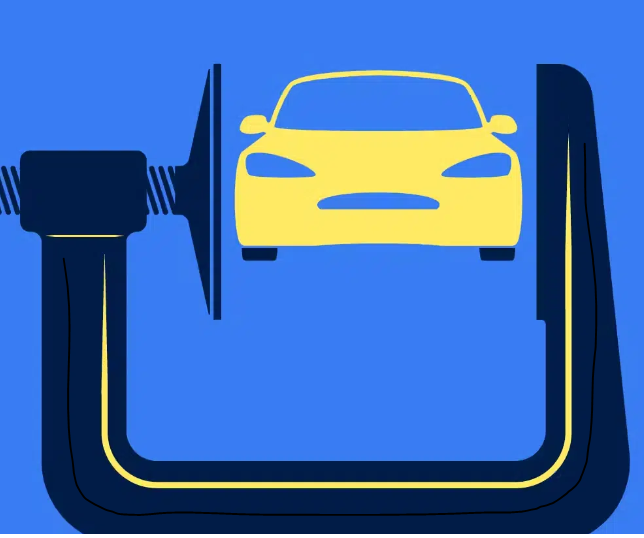Qualifying for a car loan can feel like a daunting task, especially if you’re a first-time buyer or have a less-than-perfect credit history. However, with the right approach and some preparation, you can improve your chances of securing a car loan with favorable terms. Understanding the factors that influence lenders’ decisions and taking proactive steps to strengthen your financial profile will help you navigate the process smoothly.
1. Check and Improve Your Credit Score
One of the most significant factors influencing your eligibility for a car loan is your credit score. Lenders use this score to assess your financial responsibility and determine the interest rate you’ll pay. A higher credit score (typically 700 and above) not only increases your chances of approval but also ensures you get a lower interest rate, saving you money in the long run.
If your credit score is less than stellar, don’t worry — there are steps you can take to improve it. Start by checking your credit report for any errors or discrepancies. If you find mistakes, dispute them with the credit bureau. Also, pay off any outstanding debts, such as credit card balances, to improve your debt-to-income ratio (DTI). Keeping your credit utilization rate below 30% and paying bills on time will also gradually boost your score. If you have time before applying for the car loan, focus on improving your credit score to increase your chances of securing a better deal.
2. Save for a Larger Down Payment
A larger down payment shows lenders that you are financially responsible and reduces the amount you need to borrow. While most car loan lenders require a minimum down payment of 10% to 20%, putting down more upfront can significantly improve your chances of loan approval. A larger down payment reduces the lender’s risk, which may result in better loan terms, such as lower interest rates.
If you don’t have enough savings for a substantial down payment, consider waiting a few months to save more money before applying for a loan. Alternatively, you could explore other ways to increase your down payment, such as selling unwanted assets or using tax refunds or bonuses.
3. Ensure a Stable Income and Employment History
Lenders want to know that you have a reliable and steady source of income to make timely car loan payments. Before applying, make sure you can demonstrate that your income is sufficient to cover your monthly expenses, including the car payment. Generally, lenders prefer borrowers with a stable employment history, as it suggests job security and financial reliability.
If you’re self-employed, be prepared to provide additional documentation, such as tax returns and bank statements, to prove your income. Keep in mind that lenders may also look at your debt-to-income (DTI) ratio to assess your ability to manage additional debt. A lower DTI ratio indicates that you have room in your budget to take on a car loan, which improves your chances of approval.
4. Avoid Multiple Loan Applications in a Short Time
When applying for a car loan, it’s essential to be strategic. Multiple loan applications within a short period can negatively affect your credit score. Each time you apply for credit, a hard inquiry is made, which can lower your score. To minimize this impact, try to limit the number of applications you submit and ensure you apply only when you’re ready.
One way to avoid multiple inquiries is to shop around for car loans within a short window (usually 14 to 45 days, depending on the credit scoring model). Credit bureaus typically treat multiple inquiries for the same type of loan (such as car loans) within this period as a single inquiry, so you won’t be penalized as much.
5. Choose a Car Within Your Budget
When applying for a car loan, choosing a vehicle that fits your budget can increase your chances of approval. Lenders will look at the price of the car and its resale value to ensure it’s a sound investment. If you’re applying for a loan on a used car, be aware that older cars or those with high mileage may be subject to stricter lending requirements.
It’s also essential to consider the loan term and monthly payment. While longer loan terms may result in lower monthly payments, they can also increase the total cost of the loan due to higher interest paid over time. Try to find a balance between an affordable monthly payment and the total cost of the loan. This will not only improve your chances of loan approval but also help you avoid financial strain down the road.
6. Consider a Co-Signer
If you have a low credit score or a limited credit history, having a co-signer can significantly increase your chances of securing a car loan. A co-signer is someone who agrees to take on responsibility for the loan if you fail to make payments. Lenders often view co-signers as an added layer of security, especially if they have a stronger credit history or financial stability than you.
However, be aware that a co-signer’s credit will also be affected if you miss payments, so it’s important to communicate and agree on the responsibilities before proceeding with this option.
Conclusion: Preparing for Loan Approval
Improving your chances of qualifying for a car loan involves proactive steps, such as improving your credit score, saving for a larger down payment, and ensuring a stable income. Additionally, choosing a car within your budget and limiting multiple loan applications will help streamline the process. If necessary, consider using a co-signer to strengthen your application. By following these strategies, you can boost your eligibility for a car loan and secure favorable terms that work for your financial situation. Remember, each lender has its own requirements and policies, so it’s essential to shop around and compare loan offers to find the best deal. With the right preparation, you can confidently navigate the car loan application process and drive away with a vehicle that suits both your needs and your budget.


